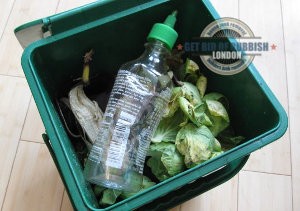Biodegradable plastics have been around for a while. By anyone’s standards biodegradable plastics are a good thing – with regular plastic materials taking hundreds of years to wither and degrade, it seemed like biodegradable ones were just the thing. In their nature, biodegradable plastics are materials which are decomposed by bacteria or other living organisms. There are two main types of biodegradable plastics in use. One of them is known as bioplastic – a kind of plastic made of renewable raw materials. The other kind of biodegradable plastic is made of petrochemical materials with biodegradable additives (which facilitate its eventual decomposition).
Until now it was widely believed that adding degrading chemicals to plastic materials does make them biodegradable, but in reality this may not be the case. A recently conducted study by the Michigan State University (MSU) has revealed some troubling results. As it turns out, polyethylene and terephthalate plastics aren’t affected by decomposition chemicals in common disposal situations like landfill and composting. The MSU study took three years to complete. Scientists from the university focused on five specific chemical additives and three particular types of plastic biodegradation. The five additives and the three categories of biodegradation are the standard for the industry/market at the moment which meant they provided a broad and accurate picture of the situation.
 There are a number of ways to decompose biodegradable plastics. All of these methods or ways are supposed to break down the plastic and turn into a different material which could be used as food by different microorganisms i.e. the plastic being biodegradable. The main ways to decompose biodegradable plastic is to use oxygen in the process of composting, also decomposition without use of oxygen – anaerobic digestion in landfills for instance. The MSU team also tested if biodegradable plastics decomposed by being simply buried in the ground.
There are a number of ways to decompose biodegradable plastics. All of these methods or ways are supposed to break down the plastic and turn into a different material which could be used as food by different microorganisms i.e. the plastic being biodegradable. The main ways to decompose biodegradable plastic is to use oxygen in the process of composting, also decomposition without use of oxygen – anaerobic digestion in landfills for instance. The MSU team also tested if biodegradable plastics decomposed by being simply buried in the ground.
The tests were run a number of times in order to yield conclusive results. It appears that additives in biodegradable plastics don’t actually as the different types of plastic and the different methods of decomposition (which were supposed to work) did not have any significant (if any) effect on biodegradable plastic waste. This is quite worrying as it means one of the apparent achievements of the chemical industry doesn’t really work. In result plastic waste is piling up and choking from beneath, instead of being broken down and consumed by microbes. Of course, the study’s results can be challenged or denied but fact of the matter is – scientific proof exists that biodegradable plastic doesn’t actually biodegrade.
This poses a serious challenge to waste management industry and authorities responsible for recycling plastic rubbish. It also requires new research and development into sustainable packaging – the study was actually funded by manufacturing companies looking for the most efficient way to decompose plastic packaging they work with. Considering all this, plastic waste must be recycled as waiting for it to decompose simply won’t work. When disposing of plastic waste use a specialised rubbish removal service as this way you ensure waste reaches the proper management and processing sites.
